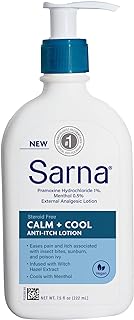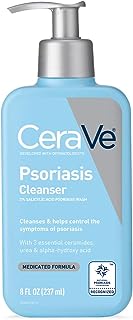5 important factors worth considering when looking for the best anti itch lotions
When you’re looking to buy anti-itch lotions, there are many things to think about to make sure you get the best and most soothing relief. With so many options on the market, it can be overwhelming to choose the right one without knowing what makes a good anti-itch lotion. Things like how it’s made, the ingredients it has, how well it works with different skin types, and if it gives long-lasting relief are important in picking the best lotion for your skin. By understanding these key points, you can make a smart choice that focuses on both getting rid of itchiness and keeping your skin healthy in the long run.
See our guide to the best anti itch lotions.
Active Ingredients
When choosing an anti-itch lotion, it’s important to understand the active ingredients. These ingredients target different causes of itchiness, like dry skin, bug bites, or allergies. For example, hydrocortisone is good for reducing inflammation and itching from eczema or psoriasis. Natural ingredients, such as oatmeal or aloe vera, are better for milder itches without side effects.
Make sure to read labels and talk to a dermatologist to find the best ingredient for your skin. It’s also a good idea to choose products with clinically proven active ingredients for reliable relief. Ingredients like menthol or camphor can give a cooling feeling that helps with itching temporarily. Personal preference matters too – some people may want fragrance-free or organic options.
By focusing on ingredients that meet your skin’s needs and what you like, you can fight itching and have healthy, comfortable skin.
Skin Type
When buying anti-itch lotions, it’s important to consider your skin type. Different skin types react differently to ingredients, so knowing if you have dry, oily, combination, or sensitive skin can help you choose the right product.
The type of anti-itch lotion you choose can make a big difference in how well it works for you. People with sensitive skin might do well with hypoallergenic and fragrance-free lotions, while those with oily skin might prefer non-greasy, fast-absorbing formulas. Keep in mind that what works for one person may not work for another, so it’s important to customize your skincare routine to fit your needs.
Considering your skin type when selecting an anti-itch lotion can help you find a product that not only relieves discomfort but also improves the overall health of your skin. By choosing a lotion that suits your specific requirements, you can ensure that it not only helps with your immediate needs but also keeps your skin healthy and balanced.
Allergies or Sensitivities
When buying anti-itch lotions, it’s important to think about any allergies or sensitivities you may have. Some lotions have ingredients that can cause bad reactions in people with sensitive skin or allergies. It’s crucial to check the ingredient list and choose products made for sensitive skin or that don’t have common allergens like fragrances, dyes, and preservatives. Your skin is delicate and needs to be taken care of, so being aware of potential allergens in anti-itch lotions is a good way to keep your skin healthy.
Choosing hypoallergenic anti-itch lotions can help relieve itchiness without making your skin worse. Picking products that are tested by dermatologists and don’t have harsh chemicals can help stop itching and discomfort without harming your skin. Using skincare products made for sensitive skin means you’re actively trying to meet your skin’s needs while decreasing the chances of having bad reactions. In the end, spending time researching and choosing anti-itch lotions that are right for your skin can really improve how your skin looks and feels over time.
Texture and Consistency
When buying anti-itch lotions, the feel of the lotion is really important. If the lotion is too thick, it can feel heavy and oily on the skin. If it’s too thin, it might not provide enough moisture or relief. The key is to find a lotion that is easy to put on and absorbs quickly into the skin. A lotion that is creamy and smooth can feel nice and help stop itchiness.
The way the lotion feels also affects how long it lasts in stopping itchiness. If the lotion is too watery, it might disappear quickly and need to be put on again and again. But if it’s thick, it can create a barrier on the skin that keeps in moisture and stops irritation. Choosing a lotion with a balanced and velvety feel can make it last longer and let you go about your day without itching. It’s important to think about both the feel and consistency of the lotion when picking one to make sure it works well and feels good when you use it.
Price and Value for Money
When buying anti-itch lotions, consumers often struggle with deciding between price and quality. It’s tempting to choose a cheaper option, but it may not work effectively. Price should not be the only factor to consider when choosing an anti-itch lotion; effectiveness and quality are also important. It’s worth spending a little more on a lotion that works well and provides long-lasting relief to save time, money, and frustration in the long term.
However, assuming that a higher price means better quality isn’t always true. Some affordable lotions can still work well without costing a lot. It’s important to look at ingredients, brand reputation, and customer reviews to determine the true value of a product. Balancing price and value is crucial when buying anti-itch lotions to ensure that you get a product that not only soothes your skin but is also a good investment in your overall well-being.
Conclusion
In a world full of anti-itch lotions, it’s important to choose ones that not only help right away but also make your skin healthier. Look for lotions with natural ingredients like plants and gentle moisturizers. These will help you feel better and take care of your skin in the long run. Remember, the best anti-itch lotion doesn’t just stop the itch – it also helps your skin stay healthy and happy.

